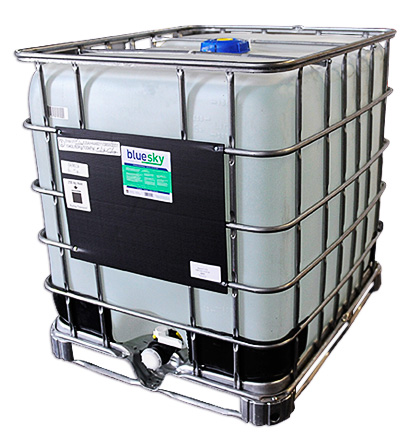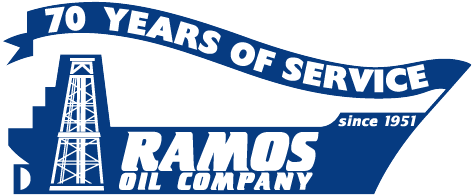A part of our 70-year history is continuously innovating our services to meet the needs of our customers. In that tradition, we added bulk Diesel Exhaust Fluid (DEF) delivery in bulk to our NorCal and Bay Area customers.
Benefits of Buying DEF In Bulk
Cost Savings
Buying DEF in bulk typically offers cost advantages compared to purchasing it in smaller containers or individual bottles. Bulk purchases often result in lower per-gallon prices, which can lead to significant cost savings, especially for businesses with high-DEF consumption.
Convenience and Efficiency
Buying DEF in bulk typically offers cost advantages compared to purchasing it in smaller containers or individual bottles. Bulk purchases often result in lower per-gallon prices, which can lead to significant cost savings, especially for businesses with high-DEF consumption.
Customizable Storage Capacity
Continuous Supply
Flexibility in Dispensing
Reduced Risk of Contamination
Why Choose Ramos Oil for DEF Fuel in Bulk?
At Ramos Oil, we are committed to providing our customers with the highest quality fuel solutions. Providing a DEF tank at our clients’ work sites is an integral part of our commitment to sustainability, and we are proud to offer it to our customers. Here are just a few reasons why you should choose Ramos Oil for your DEF fuel needs:
Quality
Convenience
We offer our customers on-site delivery of DEF fuel, so you don’t have to worry about running out or buying in small quantities.
Expertise

DEF Fuel FAQs
What is DEF Fuel and Why is it Required?
DEF fuel is a solution composed of purified water and urea used in the selective catalytic reduction (SCR) systems in diesel engines to reduce nitrogen oxide emissions.
The Environmental Protection Agency (EPA) and the California Air Resources Board (CARB) have implemented emissions standards such as the EPA’s Tier 4 regulations for non-road engines and CARB’s LEV III standards for light-duty vehicles. These standards require diesel engines to meet stringent nitrogen oxide (NOx) emission limits to reduce pollution. To meet these requirements, diesel engine manufacturers incorporate SCR systems into their designs, which rely on DEF fluid.
SCR systems use DEF as a reactant in the exhaust stream. When injected into the system, DEF reacts with the NOx emissions and converts harmful nitrogen oxides into nitrogen, water vapor, and small amounts of carbon dioxide, which are less harmful to the environment. This chemical process, known as selective catalytic reduction, helps diesel engines achieve significant reductions in NOx emissions, ensuring compliance with the EPA and CARB regulations.
To ensure compliance, manufacturers must equip their diesel engines with SCR systems and provide instructions for using DEF fluid. Additionally, vehicle owners and operators are responsible for maintaining an adequate supply of DEF and ensuring that it is used correctly in the designated SCR systems.
The EPA and CARB regularly monitor and enforce emissions standards, including inspections and emissions testing. Non-compliance with these regulations can result in penalties and fines for vehicle manufacturers, engine operators, and fleet owners.
How is Diesel Exhaust Fluid Made?
DEF is made through a controlled manufacturing process that involves combining two main components: purified water and automotive-grade urea. Here is a general overview of how DEF is made:
Urea Production: Urea, the critical ingredient in DEF, is primarily derived from synthetic ammonia. Synthetic ammonia is produced by combining nitrogen and hydrogen under specific conditions. The ammonia is then reacted with carbon dioxide to produce urea.
Purified Water: High-quality, purified water is an essential component of DEF. It goes through a rigorous purification process to remove impurities, minerals, and contaminants, ensuring that the water used in DEF manufacturing meets the required standards.
Mixing and Quality Control: The urea and purified water are mixed in precise proportions to achieve the desired concentration of urea in the DEF solution. During this process, the mixture is carefully controlled during this process to ensure the correct urea-to-water ratio is maintained.
Filtration and Quality Assurance: The DEF mixture goes through filtration to remove any particles or impurities that might affect its quality. Additionally, manufacturers perform quality assurance tests to verify that the DEF meets the specified standards, including the ISO 22241 standard for DEF purity and composition.
Packaging: Once the DEF has been manufactured and quality checked, it is packaged into various container sizes for distribution and sale. These containers range from small bottles or jugs for individual use to larger drums, totes, or bulk storage tanks for commercial and industrial applications.
It’s important to note that DEF production follows strict guidelines and quality control measures to ensure its effectiveness and compliance with industry standards. Manufacturers adhere to specific regulations, such as ISO 22241, to maintain consistent quality and guarantee that the DEF meets the required specifications for use in SCR systems of diesel engines.
How is Diesel Exhasut Fluid Made?
Selective Catalytic Reduction (SCR) is an advanced emissions control technology used in diesel vehicles to reduce nitrogen oxide (NOx) emissions. It is an after-treatment system that works in conjunction with the diesel engine’s exhaust system.
Here’s how Selective Catalytic Reduction (SCR) works in diesel vehicles:
- Injection of DEF: Diesel Exhaust Fluid (DEF) is injected into the exhaust stream of the vehicle. DEF is a mixture of urea and deionized water.
- DEF and NOx Reaction: The DEF, when heated, breaks down into ammonia (NH3) and carbon dioxide (CO2). The hot exhaust gases containing NOx pass through a catalytic converter, where the ammonia reacts with the NOx in the presence of a catalyst (typically made of platinum or palladium). This chemical reaction converts the NOx into nitrogen (N2) and water vapor (H2O).
- SCR Catalyst: The SCR catalyst is the component where the chemical reaction between the ammonia from the DEF and the NOx takes place. It is located in the exhaust system after the diesel particulate filter (DPF) or other exhaust treatment devices.
- Control System: An electronic control system monitors various factors such as exhaust gas temperature, NOx levels, and DEF injection rate. It adjusts the DEF dosing rate to optimize the conversion of NOx into nitrogen and water, ensuring effective emissions reduction.
- Additional Components: The SCR system also includes components such as DEF storage tanks, dosing modules, pumps, and sensors to manage the injection of DEF into the exhaust stream accurately.
Our sales team will help you find the best cardlock solution for your fleet.
